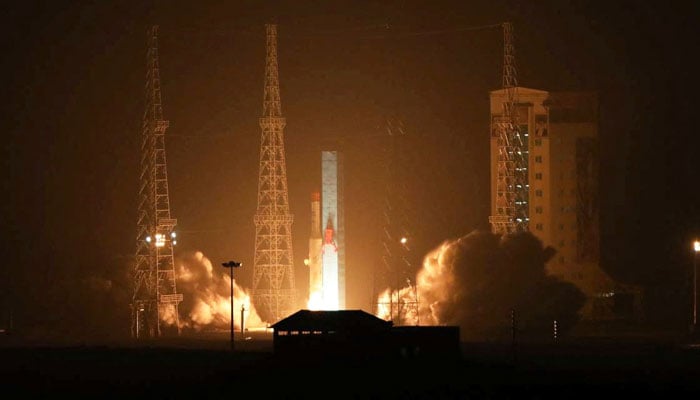Iran launches three satellites aboard 'Simorgh' carrier
Iran's information minister says signals received from Mahda, one of three satellites
January 29, 2024

Iran on Sunday finally launched three indigenous satellites into space orbits with minimum and maximum elevations of 450 kilometres and 1,100 km above Earth's surface.
This brings Iran one step closer to achieving the Geostationary Orbit (GEO), sometimes referred to as geosynchronous orbit, Iran's Islamic Republic News Agency (IRNA) reported.
Iran's latest launch, carried out using Simorgh (Phoenix) satellite carrier, reached Earth's elliptical orbit, marking the country’s first step to reach the Geostationary Transfer Orbit (GTO) and access the GEO, which is approximately 36,000 km above the Earth's surface.
The GTO is an elliptical orbit that is used to reach GEO. It has features which can be used to move satellites to other orbits such as GEO with the least amount of energy.
Iran's Supreme Council of Space met again after a 10-year break following the inauguration of President Ebrahim Raisi’s administration in August 2021.
The plan to reach GEO by the Iranian calendar year 1404 (to begin in March 2025) has already been accepted by the meetings, chaired by the president.
Iran's Minister of Information and Communications Technology Issa Zarepour stated that Simorgh launched the Mahda satellite and two other research payloads into orbit concurrently for the first time and that Mahda's signal has been received.
The satellites Mahda, Keyhan-2, and Hatef-1 were involved in Iran’s latest launch on Sunday.











